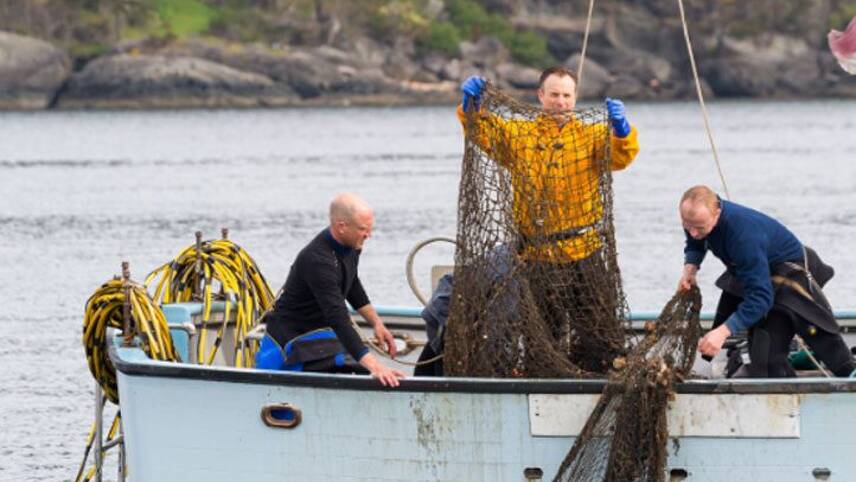Register for free and continue reading
Join our growing army of changemakers and get unlimited access to our premium content

Image: GGGI/ Joel Baziuk
The business is one of the latest signatories to the Global Ghost Gear Initiative (GGGI), which was set up by non-profit World Animal Protection in 2015 to help remove some of the millions of abandoned fishing nets, pots and lines that get left in the sea each year. It has been hosted under the Ocean Conservancy’s Trash Free Seas programme since 2019.
This waste, also known as ghost gear, is estimated to represent 10% of all marine debris and as much as 70% of all macro-plastic in the ocean. Once dumped, ghost gear is likely to remain present for hundreds of years.
As a GGGI member, Iceland will collaborate with other member businesses such as Thai Union and Cargill, as well as participating NGOs, academics and governments, to develop and implement solutions.
“Ensuring our oceans remain an environment where marine life can live and thrive is absolutely imperative,” Iceland’s managing director Richard Walker said.
“Reducing pollution is an issue that Iceland has been addressing since we made our industry-leading plastics commitment and joining the GGGI is another step forward in our efforts to reduce marine pollution.”
Walker is referring, here, to Iceland’s commitment to remove consumer-facing plastic packaging from all own-brand lines by 2023. The commitment is regarded as one of the most ambitious in the UK’s supermarket sector and, since it was set in 2018, Iceland has reduced plastic for these applications by two-thirds.
GGGI + Joel Baziuk IMAGE
Seascape approach
The announcement from Iceland comes shortly after Tesco announced that it is working with WWF to implement new sustainability-focused measures across its tuna supply chain and to encourage other food businesses to follow suit.
Tesco’s overarching commitment is to reach 100% MSC-certified tuna in its own-brand products by 2025. The supermarket will continue to support Fishery Improvement Projects (FIPs) – fisheries working towards MSC certification – after this point.
Tesco will also work with WWF to assess whether fisheries are meeting certain requirements on the health of fish stocks and related ecosystems, beyond the MSC’s basic requirements. Requirements include maintaining breeding fish population to at least 40% of their original levels; keeping mortality levels low and implementing a 100% non-retention policy for bycatch.
WWF calls this approach the ‘Seascape approach’ and is urging all major food producers to adopt these best-practice processes by 2030. Tesco has contributed expertise from its soy transition plan, designed to eliminate deforestation, to the development of the approach.
“Tuna is such an important species when it comes to the health of our marine environment, but it is still being overfished,” Tesco’s chief product officer Ashwin Prasad said.
“This new approach to tuna sourcing, developed in partnership with WWF, will play a critical role in regenerating tuna stocks while maintaining whole marine ecosystems for future generations. We’ll be working with our suppliers and others across the industry to implement the roadmap, as well as advocating for this approach to be used across other key species as well.”
Sarah George


Please login or Register to leave a comment.